In January, Arsenal appointed 35-year-old Dutch coach Renee Slegers as the Head Coach of their women’s team after a spell as Interim Manager that saw the Gunners win 10 and draw one of her 11 games in temporary charge. Initially, Slegers stabilised the group, who had endured a poor start to the season for a second season in a row, which led previous coach Jonas Eidevall to resign.
This is the second time that Slegers takes over from Jonas Eidevall, she led Rosengard to two Damallsvenskan titles in Sweden after Eidevall left for Arsenal in the summer of 2021. Slegers and Eidevall are colleagues and friends but it is becoming increasingly clear that Renee has her own ideas about being a Head Coach. This is Arseblog News’ long-read on the Arsenal Women Head Coach Renee Slegers.
In the beginning
Slegers was born in the small Dutch town of Someren-Eind in the south of Netherlands, located in the southeast of Noord Brabant. Slegers father played and, in an exclusive interview with Arseblog News last month, she described how, ‘I saw it (football) all around me.’
Slegers grew up with two younger brothers, both of whom played football and that whetted her appetite further. She says that growing up in a small town made it easier for her to play football with boys. ‘It was fun because it was a very small village and there were a lot of mixed teams. I played in a team with a mix of boys and girls.
‘It was very modern for the time to have so many girls playing football but there wasn’t much else in the village, it was almost the only sports opportunity girls could get.’ As with a lot of female footballers, Slegers says the other boys had no problem with her participation, most of the less enlightened attitudes came from parents.
‘We would turn up for games and it was never the boys in the other team, it would be the parents who would see us and see ‘ah a girls’ team’ and would start laughing and then we would win the game.’ She played with a local Dutch side called SSE from the age of 8.
At the age of 17, she joined Arsenal for a year and played a couple of cup games for the senior side. In a move she would later repeat in her coaching career, she came to Arsenal for a year to get a sense of training and playing with a big European club. She was often part of coaching sessions held by Kelly Smith, who now works as part of her coaching staff at Arsenal.
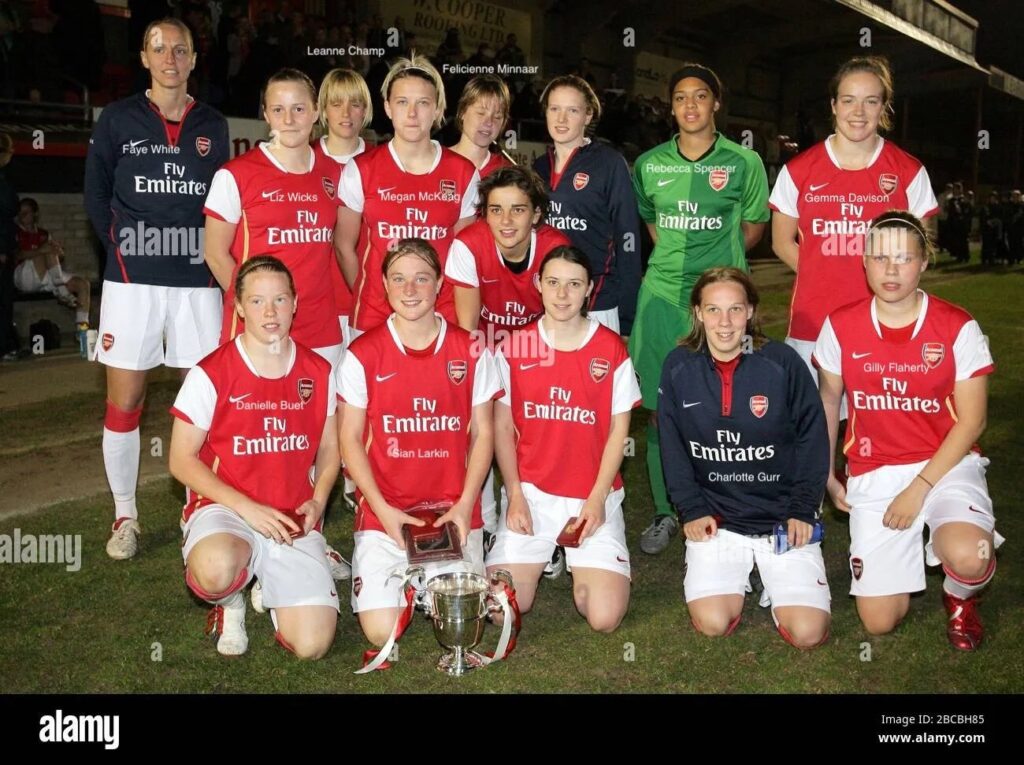
In 2007, she returned to the Netherlands where she played for Willem II as a central midfielder. At the age of 22 in 2011, she moved to Djurgardens in Sweden. Still a top women’s league, in 2011 the Damallsvenskan very much ranked alongside the Frauen Bundesliga as the premier women’s league. When Djurgardens were relegated in 2012, Renee joined Linkopings, where she played alongside the likes of Magda Eriksson, Pernille Harder and Stina Blackstenius. Slegers settled well in Sweden, her partner is Swedish and she has a good command of the language.
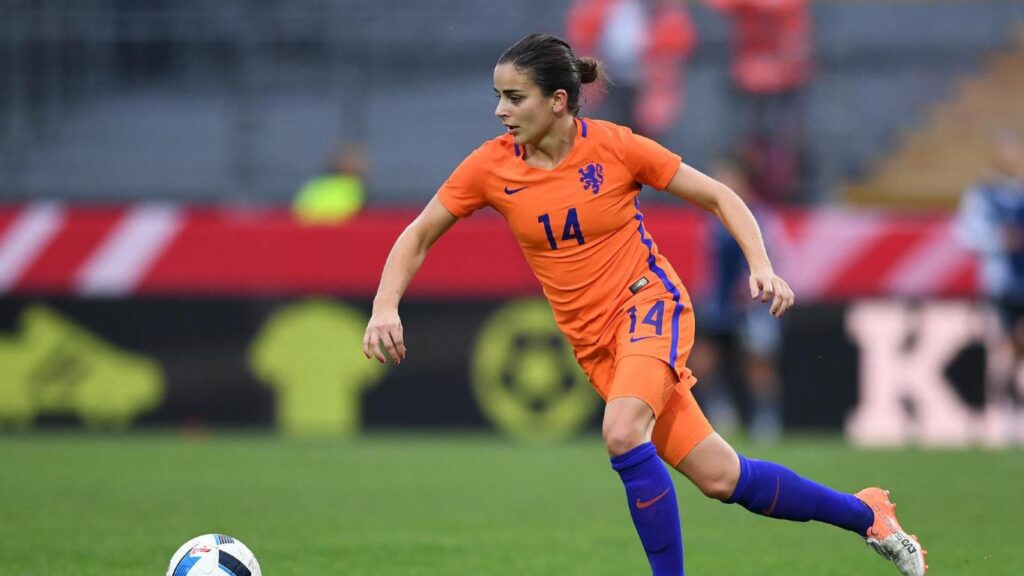
A combative, passing midfielder Slegers was first capped by Netherlands in 2009 and was part of the Dutch Euro 2013 squad. But injuries began to take hold. She spent over a year out of the game due to a pelvic injury. She missed out on the Netherlands victorious Euro 2017 campaign on home soil due to a knee injury which would eventually claim her career at the age of 26.
She was injured playing against England in November 2016, the scorer for England that day was current Arsenal Women Football Services Executive Jodie Taylor. Slegers spoke to some clubs and considered returning to play in 2018 but ultimately decided to retire from playing.
The next step
Now retired from football at such an early age, Slegers had to figure out what to do with her career. She did flirt with the idea of becoming a football journalist but felt her gifts lay more in longer form communication and interaction. Renee was already studying practical philosophy at the time of her injury.
In a recent press conference, she explained, ‘I studied communication sciences, I wanted to do something with language or writing, maybe not being a journalist but writing deeper, longer text. Then I studied practical philosophy looking more at ethics in the sports world.’ However, before she could take proper steps into her next career, she had to rehab her knee.
‘I was injured when I was 26, I was studying practical philosophy at that moment and I didn’t know what to do with my life. I had to rehab my knee and I was offered to do the A License course with the Swedish FA.’ The rest, as they say, is history. Slegers was offered a role as Assistant Coach of IF Limhamn Bunkeflo’s under-19 s in the 2018 season and was promoted to the head coach role in November 2018.
Her reputation as a developer of talent grew and in March 2021, she was appointed head coach for Sweden’s under-23 national team, a role she held for a short while before Jonas Eidevall became aware of her reputation and she went on to manage Rosengard B, before succeeding Jonas Eidevall as head coach of the club’s first team in June 2021. It is very common in Sweden for coaches to work their way up through the ranks of a club before securing a Head Coach role.
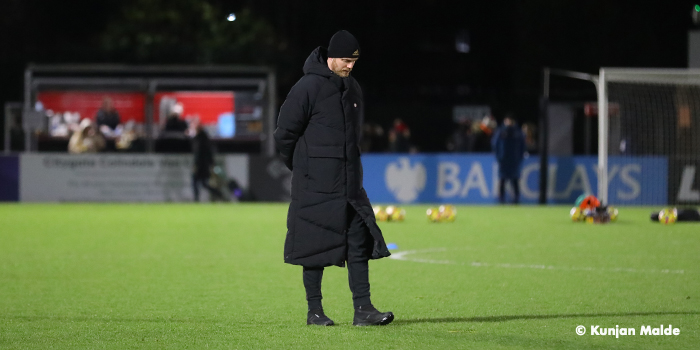
Slegers led Rosengard to consecutive Damallsvenskan titles. Slegers told Arseblog News that the role at Rosengard taught her how to deal with pressure. Rosengard are one of Sweden’s most decorated clubs and the expectation was significant, Slegers also told Arseblog News that working with a smaller staff gave results an immediacy.
‘The staff was small, the people in leading positions, like Sporting Director and Club Director, the board, were close to you. They could see your work day to day. When we lost at Rosengard the world was all black for all those people. I had so much pressure to not lose because if we did, everything would go black.’
She left the role in April 2023, amid some reports that messaging had gone a little stale. At that point, Slegers decided to take stock and take a backroom role at a club in a major European league to continue her education. ‘What I felt would be the next step for me was looking at other countries, other leagues, bigger resources, where the game is growing very fast.
‘That is when you look at England and the WSL. I was looking at the league and whether there would be something there for me to get to know in a different role in that environment and be part of that growth and see where it would take me.’ It didn’t take long for Jonas Eidevall to pick up the phone again.
Arrival at Arsenal
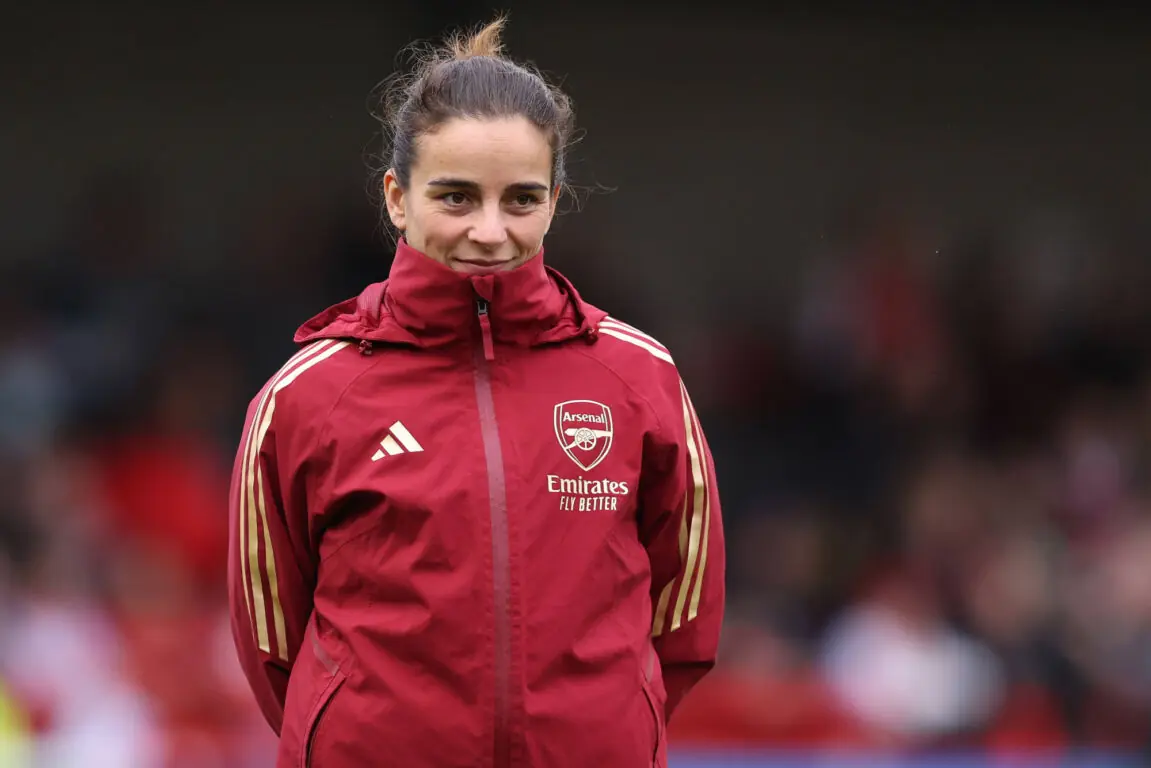
Slegers was appointed to Eidevall’s coaching staff in the summer of 2023. Her role was Individual Player Development, speaking to individual players and looking at clips and focusing on individual strengths and weaknesses. It allowed her to build a bond with players and, when Eidevall resigned, she clearly had a strong impression of each player’s attributes.
It was perhaps a tacit admission from Eidevall that, while he has a very highly rated tactical mind, he perhaps lacked the common touch with players when it came to communication. Slegers’ presence as an Individual Player Development Coach was possibly seen as a route to bridging that gap. (This is all conjecture on my part).
Slegers says she was delighted to take the role. ‘The IPD role I had here was different as well and I am happy that during my playing career and my coaching career I have done different things and be in different contexts.’ As someone who had studied communication sciences and practical philosophy, she was well placed to take on such a role.
In hindsight, it has also contributed to her well-rounded education as a Head Coach. This is someone who has put a lot of thought into how to get the best from herself and others. She also has recent experience as a top class women’s footballer and her experience has a proximity to the players that is useful. Slegers is only a year older than club captain Kim Little.
Her matchday role during her first season at Arsenal was to communicate with the analysts from the dugout in-game and relay messages about the sorts of things Eidevall wanted to clip up and focus on for the half-time teamtalk, as well as the post-match debrief. She was the link between the analysis staff and the manager on match days.
At the beginning of this season, Slegers had her contract in the IPD role extended for two years and Arsenal slightly reshuffled match day duties, with fellow assistant coach Aaron D’Antino now assigned the role of forming a bridge with the analysts and Slegers moving ‘one seat along.’
However, that all changed just a few weeks into the season.
The Renee-ssance
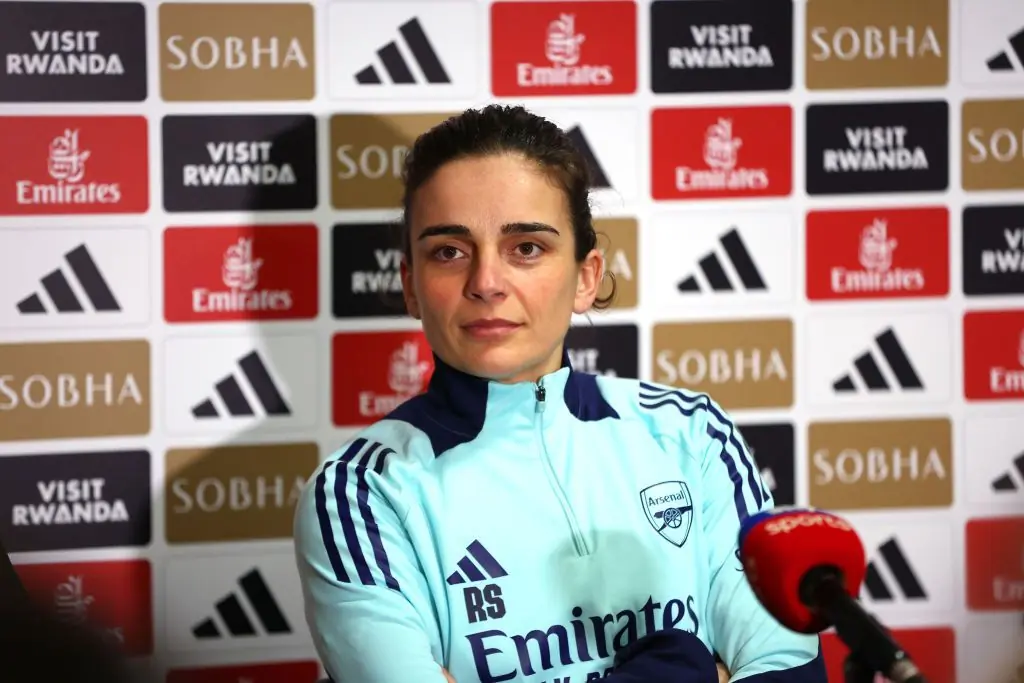
When Jonas Eidevall resigned in October, Slegers was immediately installed as the Interim Manager due to her experience in Head Coach roles. Her immediate focus was on stabilising a team that had endured a poor start to the season and while the fallout with Jonas Eidevall was not especially tempestuous according to our understanding, it was clear the players had begun to lose connection with his message.
Initially, Slegers made few changes as she sought to calm choppy waters. One thing she did pretty much straight away was move left-back Steph Catley into a left centre-back role. This was to aid the transition to more of a 3-2-5 build-up shape with Catley able to cover the left-back position while Katie McCabe supported the forward line.
Recovering into spaces was part of that decision too, after playing a direct Valarenga team for her first game in interim charge, she told Arseblog News, ‘I think we can have a look at how we defend the space behind the defensive line a little better.’ For the next game at West Ham, Catley started at centre-half. It was her first tactical switch.
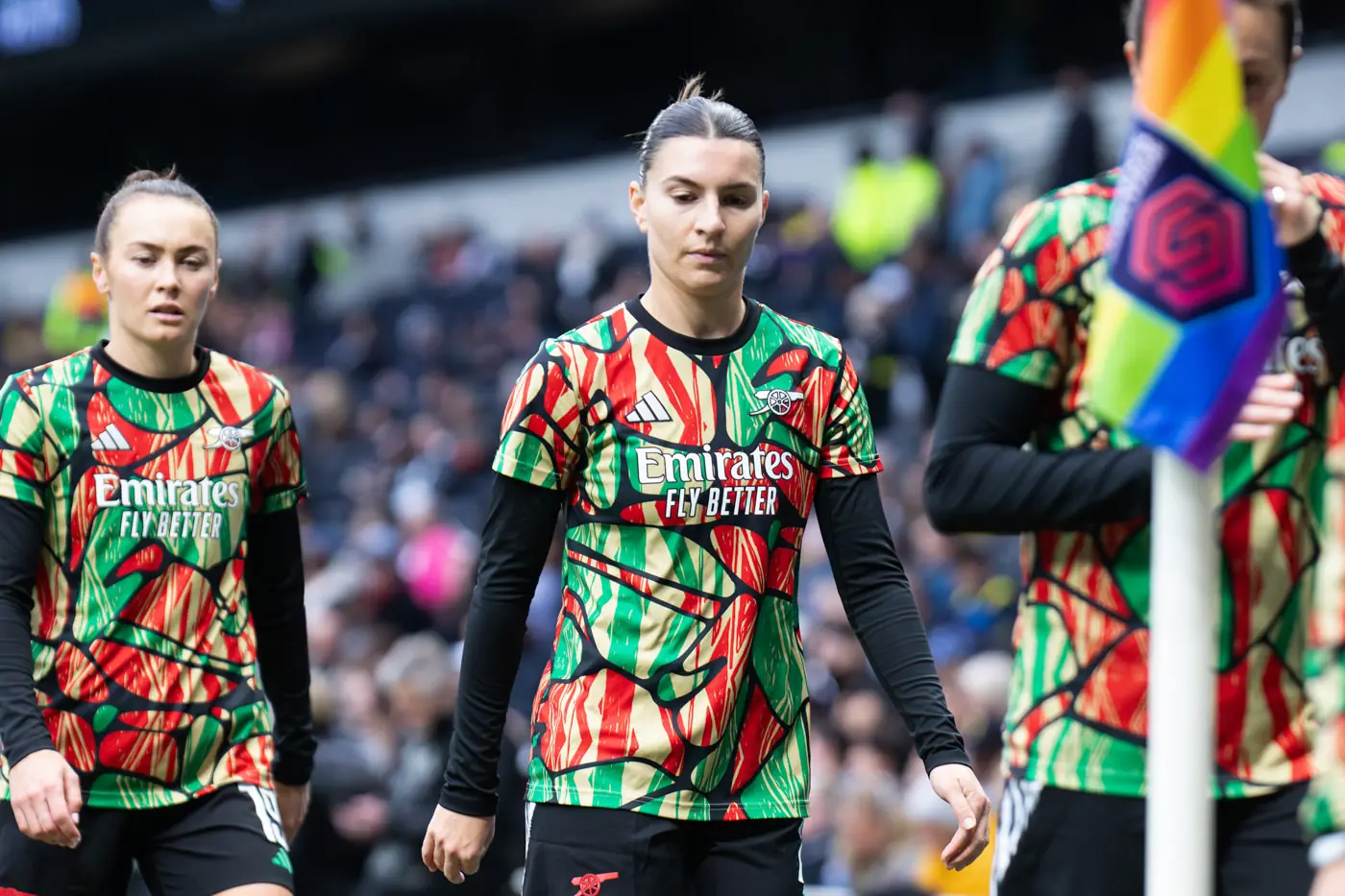
The calmness of her demeanour and her recent experience as a player were appreciated by the players. In that interview from last month, Slegers told me of her time at Rosengard, ‘I learned to deal with pressure in that environment and how to compete and how to stay composed in pressure moments. It taught me about working with a very talented team, because that was a very talented team.’
Having come from an IPD role, Slegers effectively scaled up the skills and the relationships she had learned from her previous position, using the leadership group of Kim Little, Leah Williamson, Katie McCabe and Lia Walti to reconnect with the players through a player empowerment approach that has become the central tenet of her management.
In November, she said, ‘The players spoke a lot about accountability and I think it is easy to bring it in short moments but it is important now to do it for a long time and the next step is going to be doing that.’ Slegers began to change team meetings, which focused more on asking players for their ideas on tactics and game plans.
Slegers Player Manager
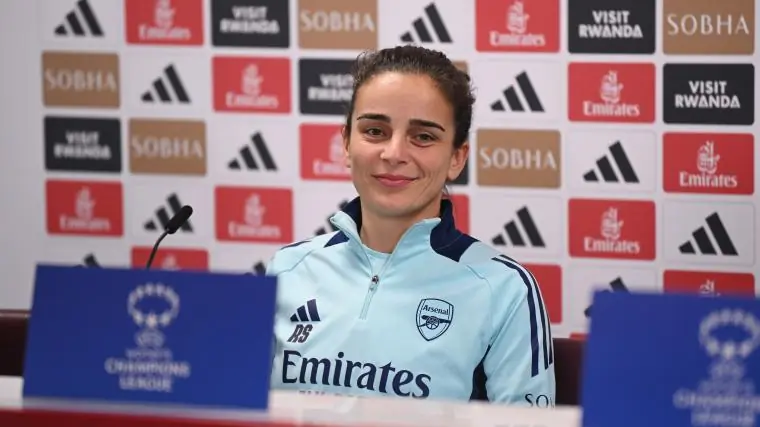
Slegers focused on a collegiate approach with both her coaching staff and her players. She is always dressed in monogrammed club tracksuit like the rest of her coaching staff. Before games, her, setpiece coach Chris Bradley, assistant coach Aaron D’Antino and attacking coach Kelly Smith will kick a ball around together while the players warm up with the fitness coaches.
Her recent experience as a player has been a crucial tool in forging close relationships with the players. In a recent roundtable with a few of us at the Sobha Realty Training Centre, Beth Mead said, ‘Renee was a player and she understands sometimes you have these kind of moments in your career. We sat down, we have worked on things on the pitch that I can improve on, I can work more on. Sometimes you need it in black and white.’
Renee occasionally joins in with rondos in training, which are now split according to the areas of the team, something Leah Williamson cited as a crucial factor in connecting with the players, especially the quieter ones who are not as forward in team meetings. ‘Playing football is just a natural means of connection and the girls get that with Renee, it’s just a nice way in,’ she said.
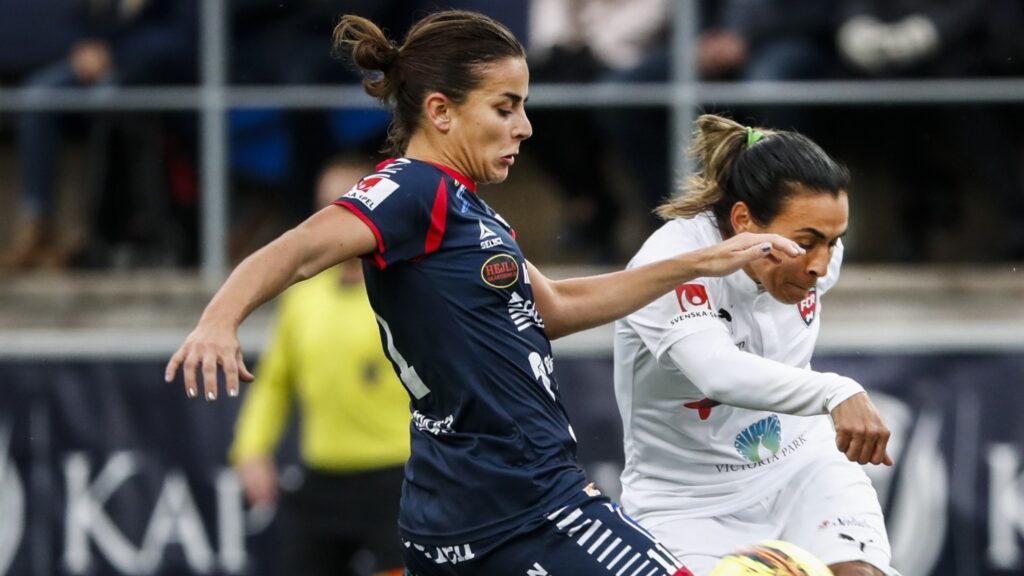
Slegers admits that she has begun to lean into her playing career again as a means of shaping her coaching style, ‘I am eight years into my coaching journey, I think I started to lose touch a little with my playing days when I was looking into methodologies and tactics,’ she explained at a recent press conference. ‘I think I floated away a little from my playing days.
‘But I am going back to that now, I think it is very important to understand the players and go back to when I was playing to get their perspective.’ Players are engaged in different ways, Slegers revealed in her programme notes recently that she does not spend much time in the dressing room on match days, preferring to leave that space for players to talk among themselves.
In training, she encourages players to speak to one another during scheduled intervals and water breaks. ‘On the pitch we focus on communication and how communication is important for our momentum and we allow breaks in training for them to interact with each other. They have strict intervals and resting times but sometimes we give them a little bit extra when we see there are good discussions going on.’ These discussions can focus on how players like to receive the ball, for example.
Renee has also slightly altered how team meetings happen, with a focus on players contributing their ideas. ‘It could be on the match day minus 1 that we grab a couple of players before the team meeting and say, ‘this is how they setup on their goal kicks, this is the first setup and this is the second setup, what would you do?’ That is how we try to activate them, not only because we want their engagement but because they have really good ideas.’
It’s also a good way of keeping players on their toes, of course and making sure they are not going through the motions in training. Part of the idea is that this also helps players to problem solve on the pitch and to independently arrive at solutions when the momentum of a match switches against them. Slegers has leant into her recent playing experience and her IPD role and scaled them up as central parts of her approach.
The big chair
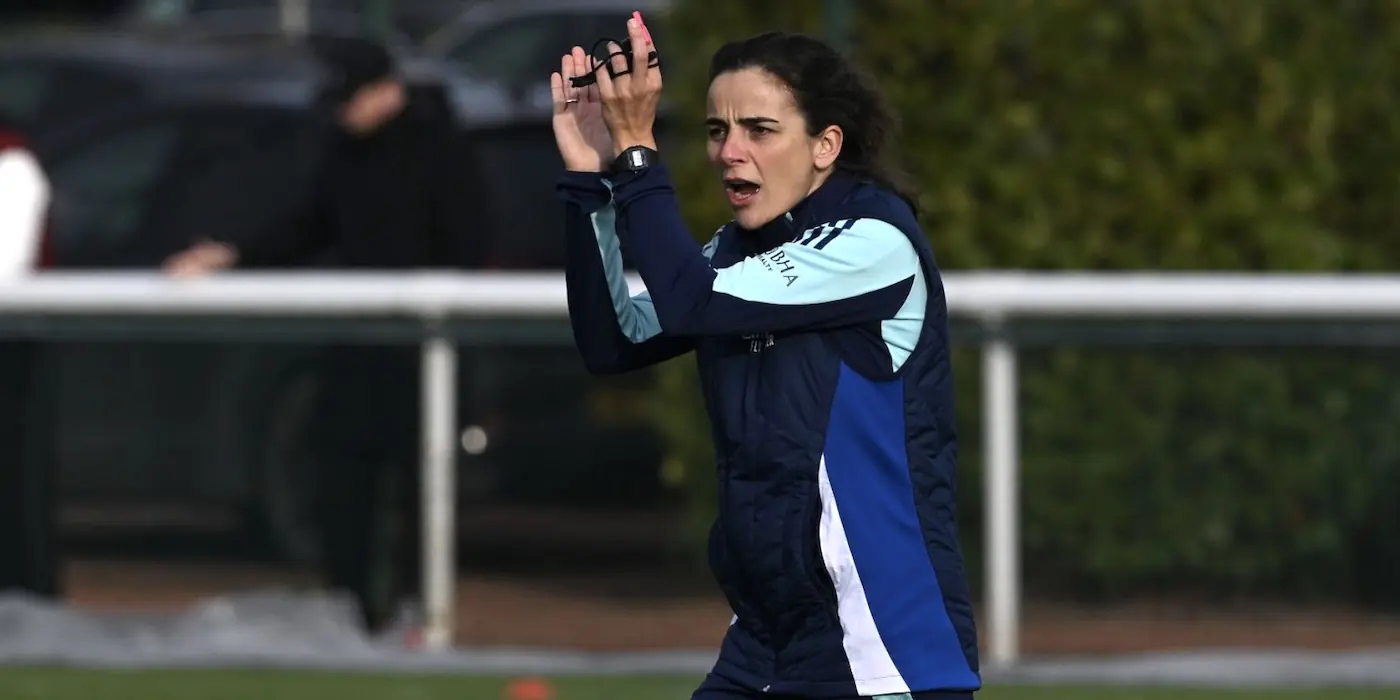
Once appointed into the Head Coach role permanently, Slegers began to reveal more about her principles to the players. She refers to it as ‘The Arsenal Way’ which contains five pillars, only three of which she has made public to this point. Slegers explains that she did not make any presentations to the players about her values while she was Interim, she waited until she had the job permanently.
The first value is empowerment, which I think we have covered in detail in the previous section. The second is enjoyment. ‘Behaviours are infectious, you get the best out of yourself and others around you when you enjoy what you are doing,’ she explained recently. The third is respect. ‘People and equipment’, she emphasised. ‘Respecting ourselves and who we are and respecting the staff around us.’
Slegers often uses the phrase ‘in the building’ when referring to her squad and her coaching staff. She has sought to create an inner sanctum at the training ground. The manager says she rarely exposes herself to external factors, even when it comes to recruitment, she says she leaves negotiating with agents etc to the recruitment staff. There is a clear sense of devolution.
‘I don’t really read the media and I am not on social media,’ she explained recently. ‘So I don’t really experience the external pressure. I really try to be in the moment and see how I can impact the team.’ Assistant Aaron D’Antino, originally hired by Joe Montemurro in 2018 and with a background in video analysis as well as strength and conditioning, focuses on the defence and defensive midfielders, while Slegers focuses on the attack. Renee clearly sees being the Head Coach of a club like Arsenal as a primus inter pares effort.
Fans have noted her effective use of in-game changes and she has a habit of making earlier substitutions than her predecessor when the game plan demands it. Slegers says this comes from extensive pre-planning for different in-game scenarios. She says it makes sense to effectively pre-plan substitutions according to the game state so that she can remove emotion from her decisions during the heat of a game.

While she is a close professional acolyte of Jonas Eidevall and the two remain close friends, Slegers’ style should not be entirely conflated with Eidevall’s even if they are stylistically similar. Slegers is already showing a penchant for inverting full-backs, for example. Emily Fox and Katie McCabe are very capable of this.
It is not as natural to Steph Catley and she is now considered a centre-half. It is not as natural for Laura Wienroither and she was informed she did not feature in the manager’s long-term plans and left for Manchester City on loan in January. The arrival of Jenna Nighswonger from Gotham FC confirms both Catley’s position as a centre-back and Slegers’ preference for a full-back who can come into midfield on occasion.
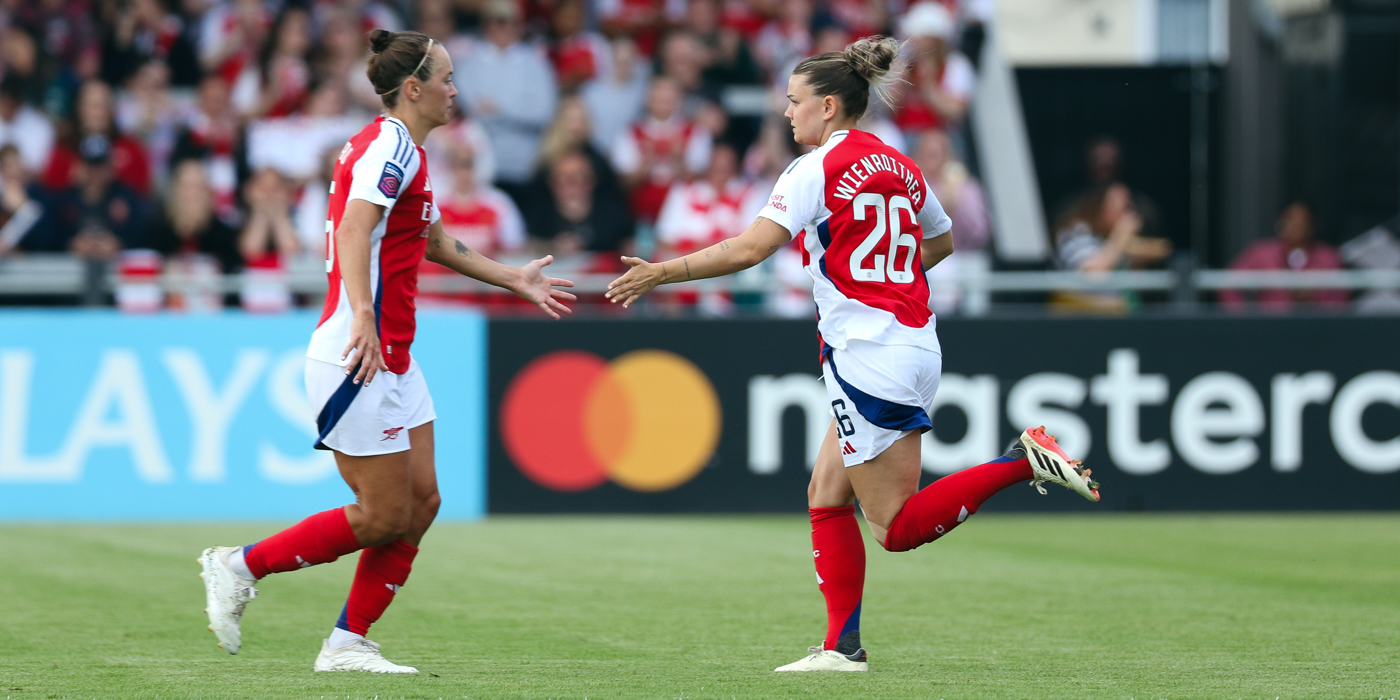
Slegers has used Katie McCabe as an auxiliary left-winger, allowing Mariona to push inside and float into more central spaces. She has asked McCabe to invert into midfield against certain opposition and in certain game states. We are beginning to see some small divergences from Eidevall’s game model.
Renee Slegers turns 36 today, but Slegers the Arsenal Head Coach has been close to a decade in the making. Her academic and professional backgrounds have both been utilised to create a close knit environment within the squad that relies on players being engaged and empowered to add their own ideas. To this point, her reign is referred to affectionately by Arsenal fans as ‘the Renee-ssance.’
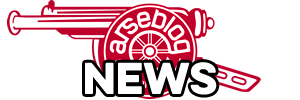




Thank you for this informative and thoroughly enjoyable background. All the best to Renew and the team!
Great Article Tim, interesting to see how she came to be here. Will be interesting to see how she shapes the team from here